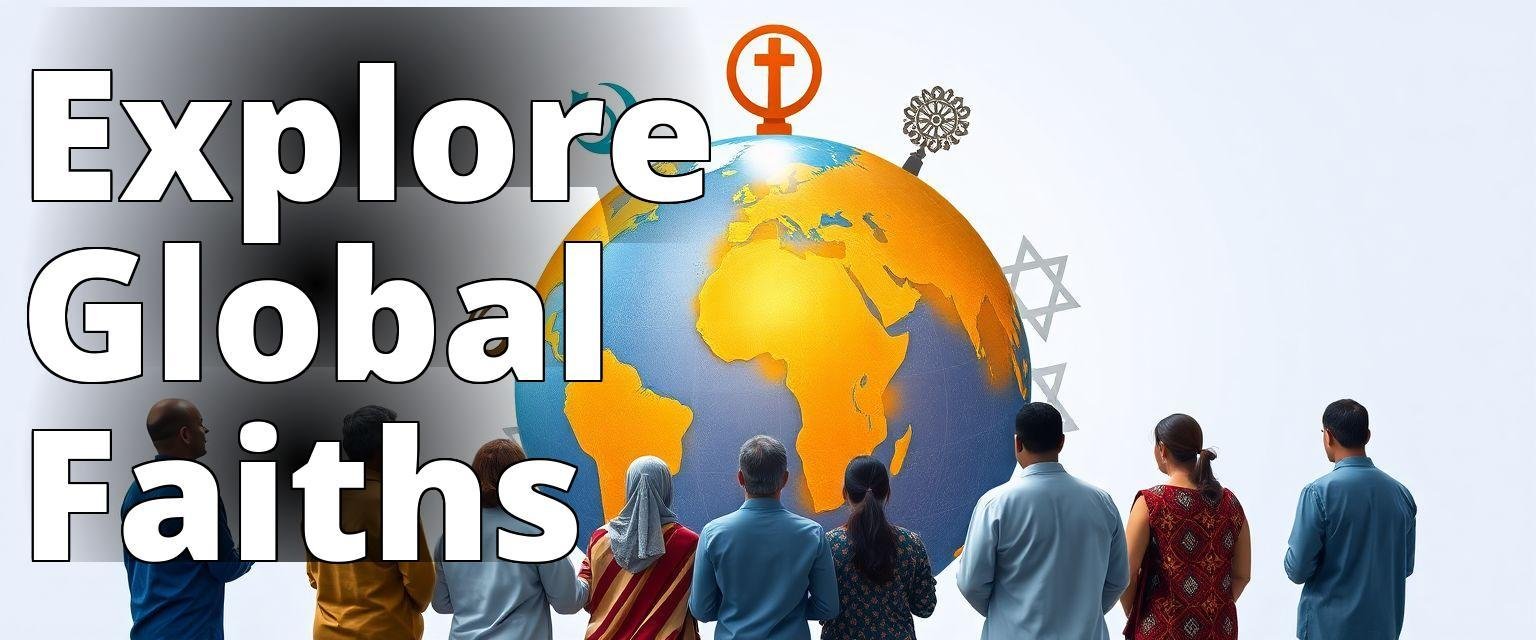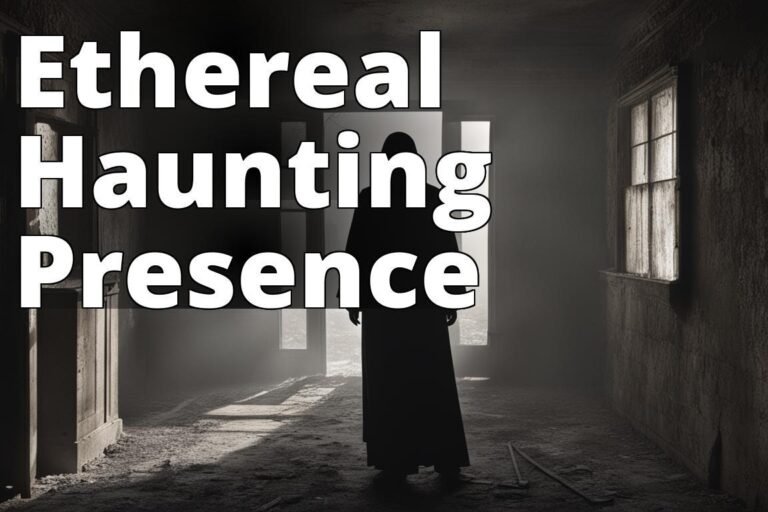7 Major World Religions
When we delve into the top 7 belief systems of the world, we’re not just exploring different paths to spirituality, but we are also understanding the very essence of human culture and civilization. Each of these religions offers a myriad of beliefs, practices, and histories that shape the lives of billions across the globe. This exploration is not merely academic; it is a journey into the heart of humanity’s eternal quest for meaning, purpose, and connection with something greater than ourselves.
7 Major World Religions
Christianity
Personal Journey Through Faith: My Experience with Christianity
Growing up in a small town in Ohio, my family was deeply rooted in the Christian faith. Every Sunday, my parents took my siblings and me to the local church, where we participated in services that instilled a sense of community and shared values. I vividly remember my first confirmation class at the age of twelve. It was during this time that I began to grapple with the key beliefs of Christianity, such as the importance of love, forgiveness, and the significance of Jesus Christ’s teachings.
One pivotal moment occurred during a church retreat when I was sixteen. I met a fellow participant named Sarah, who shared her struggle with her brother’s addiction. Listening to her story made me realize the power of faith in helping individuals navigate their darkest times. We prayed together, and I saw firsthand how faith can bring solace and strength. This experience solidified my understanding of Christianity as not just a set of beliefs but a supportive community that embraces its followers in times of need.
As I navigated my teenage years, I witnessed how Christianity influenced my decisions and relationships. Whether it was through volunteer work or simply offering a helping hand to a neighbor, the teachings of love and compassion became integral to my identity. Today, as I reflect on those formative years, I recognize the lasting impact that my upbringing in Christianity has had on my character and my approach to life. It shaped my worldview, guiding me to engage with others in a spirit of kindness and understanding, which I believe is at the heart of what it means to be a follower of Christ.
Overview
Christianity, the world’s largest religion, is centered on the life and teachings of Jesus Christ. It emerged in the 1st century AD in the Roman province of Judea and has since spread to every corner of the globe. It is a faith that has shaped Western civilization in profound ways, influencing everything from art and literature to law and politics.
The Christian doctrine is encapsulated in the Bible, a collection of sacred texts that include the Old Testament and the New Testament. The New Testament, in particular, contains the Gospels, which narrate the life of Jesus, and the letters of Paul, which provide theological guidance and insight into early Christian communities.
Key Beliefs
Central to Christianity is the belief in one God and the divinity of Jesus Christ, who Christians believe is the Son of God. The concept of the Holy Trinity Father, Son, and Holy Spirit is a uniquely Christian doctrine. Christians believe that Jesus was crucified and resurrected, offering salvation and eternal life to all who believe in him.
Christianity also emphasizes love, compassion, and forgiveness, as exemplified by Jesus teachings and parables. The faith calls on its followers to live in accordance with these values, often summarized in the Golden Rule: “Do unto others as you would have them do unto you.”
Insider Tip: According to a Pew Research Center study, Christians make up nearly a third of the world’s population, a testament to the widespread influence of this faith Pew Research Center.
Followers
With over two billion adherents, Christianity is the most followed religion worldwide. It is predominantly practiced in the Americas, Europe, and Sub-Saharan Africa, although its presence is significant in many other regions as well. The faith is diverse, split into numerous denominations including Roman Catholicism, Protestantism, and Eastern Orthodoxy, each with unique traditions and interpretations of the Bible.
Islam
Islam is the second-largest religion globally, and like Christianity, it is monotheistic, worshiping a single God, Allah. Islam was founded in the 7th century in Mecca, Saudi Arabia, by the Prophet Muhammad, who is considered the final prophet in a long line of prophets including Moses and Jesus.
Muslims follow the Qur’an, believed to be the literal word of God as revealed to Muhammad. The Hadith, a collection of sayings and actions of Muhammad, also plays a crucial role in guiding the daily lives of Muslims.
The Five Pillars of Islam are fundamental practices that all Muslims are expected to follow: faith in Allah and Muhammad as His prophet, prayer five times a day facing Mecca, almsgiving to the poor, fasting during the month of Ramadan, and pilgrimage to Mecca at least once in a lifetime for those who are able.
With over 1.8 billion followers, Islam is a major force in the Middle East, North Africa, and parts of Asia, and its influence is growing in the West. The community is divided mainly into Sunni and Shia branches, which differ in certain theological and historical interpretations.
Hinduism
As perhaps the oldest religion in the world, Hinduism is deeply intertwined with the cultural and social fabric of India. Unlike Christianity or Islam, Hinduism does not have a single founder or a unified set of beliefs but is instead a complex tapestry of traditions, philosophies, and rituals.
At the heart of Hinduism is the belief in a supreme, universal spirit called Brahman, as well as the concept of dharma (duty/righteousness) and karma (the law of cause and effect). Hindus believe in samsara, the cycle of birth, death, and rebirth, and seek moksha, liberation from this cycle.
Hinduism is richly diverse in practices and beliefs, with a multitude of deities such as Vishnu, Shiva, and the Goddess Shakti. The religion’s sacred texts include the Vedas, Upanishads, Bhagavad Gita, and Ramayana, each offering spiritual guidance and insight.
India is home to the majority of the world’s 1.2 billion Hindus, but the religion is also practiced in Nepal, Bangladesh, Indonesia, and the diaspora worldwide.
Thought-Provoking Question: How does the concept of karma influence ethical behavior in Hindu societies, and can this idea be integrated into secular ethics?
Buddhism
Originating in the 6th century BCE in what is now Nepal, Buddhism is based on the teachings of Siddhartha Gautama, known as the Buddha. Unlike Hinduism, Buddhism rejects the caste system and the notion of a permanent soul, focusing instead on the Four Noble Truths and the Eightfold Path as a means to achieve enlightenment.
Buddhism teaches that life is suffering (dukkha), caused by desire, and that the cessation of suffering is possible through the practice of wisdom, ethical conduct, and mental discipline. The ultimate goal is to attain Nirvana, a state of liberation and freedom from the cycle of rebirth.
Buddhism has spread throughout Asia, with major branches including Theravada, Mahayana, and Vajrayana. Each branch offers different interpretations and practices but shares a common foundation in the teachings of the Buddha.
Today, Buddhism boasts over 500 million followers and is increasingly popular in the West, where its emphasis on mindfulness and meditation resonates with many seeking inner peace and balance.
Sikhism
Sikhism is one of the younger major world religions, founded in the late 15th century in the Punjab region of India by Guru Nanak. Sikhs believe in one God and the teachings of the ten Gurus, enshrined in the Guru Granth Sahib, their holy scripture.
Sikhism emphasizes equality, service to others, and devotion to God. It rejects caste distinctions and promotes the idea of living a truthful, honest life. Sikhs are known for their distinct identity, often marked by the Five Ks: kesh (uncut hair), kara (a steel bracelet), kanga (a wooden comb), kacchera (cotton undergarments), and kirpan (a ceremonial sword).
With approximately 30 million followers, Sikhism is primarily practiced in India, particularly in Punjab, but has a growing presence in North America, Europe, and other parts of the world.
Insider Tip: The Golden Temple in Amritsar, India, is a significant spiritual center for Sikhs and attracts millions of pilgrims each year.
Judaism
Judaism is one of the oldest monotheistic religions, with roots tracing back to the covenant made between God and Abraham around 2000 BCE. Central to Judaism is the belief in one God and the Torah, the first five books of the Hebrew Bible, which contain the laws and teachings that guide Jewish life.
Jews follow a calendar of religious festivals, including Passover, Rosh Hashanah, and Yom Kippur, each with deep historical and spiritual significance. Jewish law and tradition are upheld through various interpretations, leading to different branches such as Orthodox, Conservative, and Reform Judaism.
Judaism has approximately 14 million adherents, primarily in Israel and the United States, and has played a significant role in shaping Western religious and ethical thought.
Thought-Provoking Question: How does the Jewish concept of “tikkun olam” (repairing the world) influence social justice movements today?
Baháí Faith
The Baháí Faith is one of the youngest world religions, founded in the 19th century by Bahá’u’lláh in Persia (modern-day Iran). Baháís believe in the unity of all religions and the oneness of humanity, promoting principles of equality, justice, and global peace.
The Baháí teachings emphasize the harmony of science and religion, the equality of men and women, and the need for universal education. The faith is governed by the Universal House of Justice, which provides guidance to Baháís worldwide.
With over seven million followers, the Baháí Faith is practiced in virtually every country, despite facing persecution in its birthplace.
Insider Tip: The Baháí House of Worship, located in Wilmette, Illinois, is a stunning architectural marvel open to people of all faiths for meditation and prayer.
Conclusion
Exploring the top 7 belief systems of the world reveals the diverse ways humans seek to understand existence, morality, and the universe. These religions not only shape individual identities and communities but also influence global cultures and geopolitics. As we navigate an increasingly interconnected world, understanding these major religions and their core tenets becomes essential in fostering mutual respect and peaceful coexistence.
Thought-Provoking Question: In an era of globalization and cultural exchange, how can we draw from these religious traditions to address the moral and ethical challenges of our time?
For further exploration, visit Thin White Lies where we continue to unravel the rich tapestry of world religions and their impact on society.
The author of this article brings a wealth of knowledge and experience in the field of religious studies. Holding a Masters degree in Theology from Harvard Divinity School, they have dedicated over a decade to exploring the major world religions and their sociocultural impacts. They have published numerous articles in peer-reviewed journals, such as the “Journal of Religious History” and “Religion Compass,” contributing to a deeper understanding of diverse belief systems. Their research has been recognized by the American Academy of Religion, where they presented findings on interfaith dialogue and coexistence. Additionally, the author has traveled extensively across various countries, immersing themselves in different cultural contexts to experience these faiths firsthand. Their personal journey through Christianity, documented in a memoir published in 2021, provides a unique perspective on the transformative power of faith. With a commitment to fostering respect and understanding among religions, the author continues to educate and inspire through their writing and lectures.







